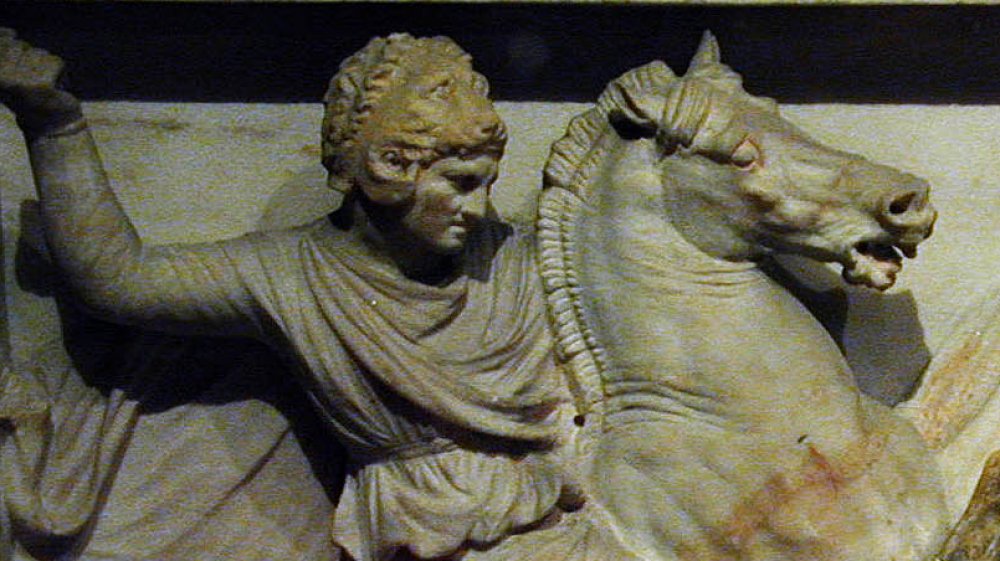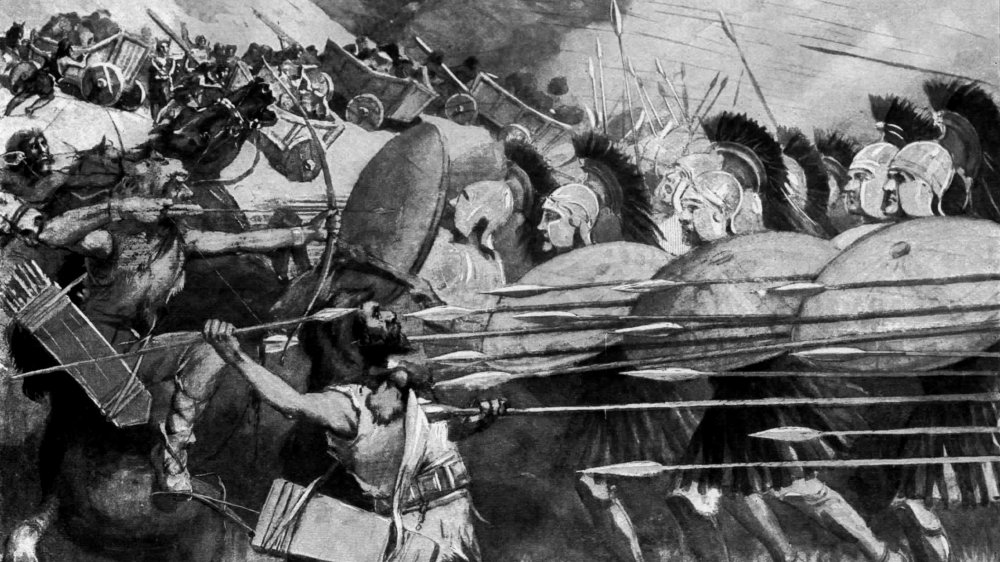The Reason Alexander The Great's Army Revolted
No man is an island unto himself, and no king conquers an island alone. During the 4th century B.C., no man understood that better than Alexander the Great. Armed with a military juggernaut, the Macedonian monarch turned islands, mainlands, and almost every other land in the known world into his empire. Alexander recognized that rigorous discipline, unity, and uniformity were the lifeblood of his killing machine. Per the Ancient History Encyclopedia, the king proclaimed, "Remember upon the conduct of each depends the fate of all."
Thanks to reforms implemented by his father, Philip II, Alexander would wield an army that displayed unprecedented discipline. Each soldier swore an oath of loyalty to the king. The troops wore uniforms to foster cohesion and drilled tirelessly to master the tightly packed phalanx formation that Philip innovated. Even the way soldiers bathed was tightly regulated. According to an anecdote told by Macedonian author Polyaenus, Philip once dismissed a mercenary officer "for taking a warm bath, which apparently even Macedonian women would not do after giving birth." The beneficiary of his father's brilliance, Alexander would prove to be an extremely skilled military strategist and amazing motivator who preached, "There is nothing impossible to him who will try." But he would try his troops' patience too much, prompting his remarkable army to mutiny.
How Alexander grated on his army
Roughly 12 years into his historic reign on the Macedonian throne, Alexander the Great had more than lived up to his epithet. As Britannica recounts, he had vanquished Persia and triumphantly entered Egypt, which embraced him as "a deliverer." He invaded and vanquished part of India, only turning back after his war-weary army insisted. But between 326 and 324 B.C. he adopted a policy that enraged the devoted soldiers who had traveled and trampled the world with him.
Alexander planned to create a "master race" through the intermixing of Macedonians and Persians. He and 80 officers wedded Persian women to get the ball rolling in the hay. Besides giving off disturbing 1930s Germany vibes that his troops obviously wouldn't have picked up on, the policy made the Macedonian worry that their status was in jeopardy. While staying in the ancient Mesopotamian city of Opis, Alexander made the controversial decision to send Macedonian veterans home, sparking fears that he intended to relocate the capital of his empire to Asia.
A full-blown mutiny ensued. Only Alexander's royal bodyguard remained loyal. To quell the rebellion, the king fired his entire army and began replacing his troops with Persians. Realizing their gambit backfired, the mutineers backed down and got back in line. As a gesture of goodwill, Macedonians and Persians broke bread together at a 9,000-person banquet. Turns out Alexander was also great at conflict resolution.

